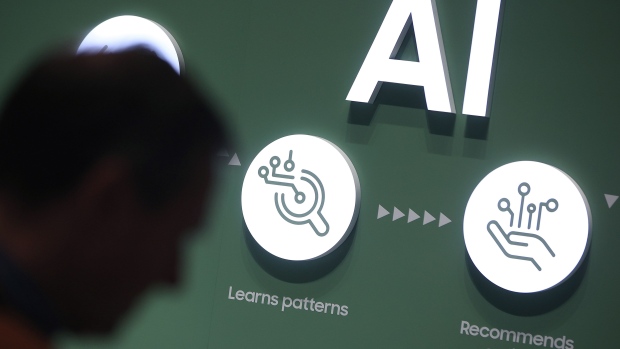Dec 6, 2023
Bank of England to Review AI Risks to British Financial System
, Bloomberg News

(Bloomberg) -- The Bank of England warned that wider adoption of artificial intelligence could bring systemic risk to the financial system and said it would review how to ward off the threat in 2024.
Governor Andrew Bailey said it’s crucial that banks and investors understand both the potential the technology has in boosting productivity and also the risks that will emerge from changing work practices.
“It’s not out of control in the sense of sort of ‘2001 A Space Odyssey’,” Bailey said in reference to the 1968 Stanley Kubrick film about a supercomputer that took control of a space station. “It’s so complicated in many of its forms that understanding exactly what the black box delivers can be very hard.”
The remarks at a press conference Wednesday where the UK central bank released a report on risks to the financial system reflects the nation’s effort to take a lead in developing AI and also regulating its more damaging effects. Prime Minister Rishi Sunak last month hosted a summit at Bletchley Park, the home of Britain’s World War II code-breakers, devoted to the issue.
The BOE, which oversees banks and the UK financial system, said AI and machine learning could deliver significant benefits to the industry. It stressed that regulation should ensure that firms had sufficient oversight and control of the potential dangers.
The impact of AI and machine learning, including large language models, on financial stability “needed careful monitoring and consideration,” the BOE said in a record of the Nov. 21 Financial Policy Committee, which was released on Wednesday. The panel would work with “other relevant authorities” to ensure that the UK financial system is resilient to the risks, the committee said.
“It has quite profound implications potentially for economic growth, productivity, and for how economies are shaped going forwards,” Bailey said. “We have to embrace it with our eyes open. AI has tremendous potential as well. We mustn’t describe it entirely as, as a bag of risks.”
AI is viewed by Sunak’s team as a political strength for someone who studied and worked in Silicon Valley. The prime minister wants to differentiate himself from Keir Starmer — whose opposition Labour Party leads the ruling Conservatives in polls — to address technological challenges ahead of an election expected in 2024.
For now, financial firms appeared to be exploring relatively low-risk uses of large language models, such as retrieving information rather than automating business decisions, the BOE said. However, that position may shift as the technology spreads.
Finance firms from JPMorgan Chase & Co. to NatWest Group Plc are adopting the new technology in areas such as customer service, fraud detection and data analysis, hoping to improve productivity and cut costs.
The BOE separately stepped up its warnings about hedge funds shorting US Treasury futures, saying its measure of the net position is now the larger than during the “dash for cash” crisis in early 2020.
The financial stability report also noted that:
- The full effect of higher interest rates had yet to feed through to consumers and businesses, suggesting some risks have yet to materialize. It said those risks could be amplified by vulnerabilities in the market-based finance system.
- There’s evidence that major UK bank net-interest margins have peaked, but the profitability of those institutions is expected to remain “robust.”
- The BOE maintained its countercyclical capital buffer at 2%.
- The overall risk environment remains “challenging” with long-term interest rates in the US and UK near levels before 2008.
The report showed that UK households are in better shape to cope with a jump in interest rates than when the BOE last made its assessment in July. It estimated about 440,000 households will end up with debt levels that are difficult to service, well below the previous estimate of 650,000 and only 40,000 above the current level.
Overall, the household debt to income ratio was 139% in 2023, the lowest level since 2002. That reflects rising real incomes and efforts by households to reduce their debt.
(Updates with context and comment from first paragraph.)
©2023 Bloomberg L.P.





